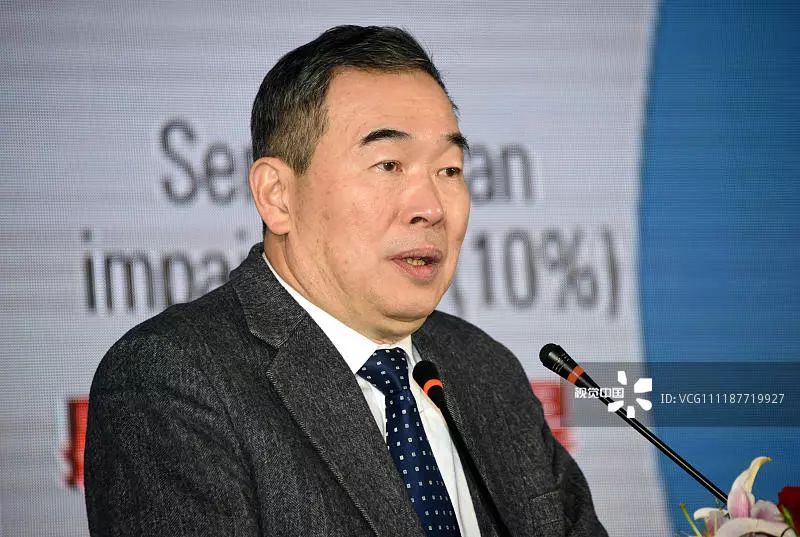蒲慕明:写给实验室博士的email,施一公转给了所有的学生
导语:
著名的华人生物学家蒲慕明先生曾经有一封非常著名的email在网上广为流传,这封email是蒲先生写给自己实验室所有博士生和博士后的,其中的观点我完全赞同。这封email写的语重心长,从中可以看出蒲先生的良苦用心。我把这封email转给了我实验室的所有学生。
其中的一段是这样说的:“The most important thing is what I consider to be sufficient amount of time and effort in the lab work. I mentioned that about 60 hr working time per week is what I consider the minimal time an average successful young scientist in these days has to put into the lab work……I suggest that everyone puts in at least 6 hr concentrated bench work and 2+ hr reading and other research-related activity each day. Reading papers and books should be done mostly after work.”(我认为最重要的事情就是在实验室里的工作时间,当今一个成功的年轻科学家平均每周要有60小时左右的时间投入到实验室的研究工作......我建议每个人每天至少有6小时的紧张实验操作和两小时以上的与科研直接有关的阅读等。文献和书籍的阅读应该在这些工作时间之外进行。
——施一公
蒲慕明,1948年10月生,中国科学院院士,美国科学院外籍院士,台湾“中研院”院士。现任中国科学院神经科学研究所所长,中国科学院脑科学与智能技术卓越创新中心主任。1970年毕业于台湾清华大学物理系,1974年于美国Johns Hopkins大学获生物物理学博士学位,1974-1976年在美国普度大学生命科学系从事博士后研究,1976-1985年在美国加州大学艾文分校生物物理系任助理教授、副教授、教授,1985-1988年任耶鲁大学医学院分子神经生物学系教授,1988-1995年任美国哥伦比亚大学生命科学系教授,1995-2000年任美国加州大学圣地亚哥分校Stephen Kuffler讲座教授,2001-2006年任美国加州大学伯克利分校分子与细胞生物学系讲座教授和神经生物学部主任,2006-2013年任该校Paul Licht生物学杰出讲座教授。1999年起任中国科学院神经科学研究所首任及现任所长、神经可塑性研究组组长、高级研究员、博士生导师。2011年起任科技部重大科学问题导向973计划“人类智力的神经基础”首席科学家,2012年起任中科院战略性先导科技专项(B类)“脑功能联结图谱”首席科学顾问。已发表16篇CNS,其中:Cell:3篇,Nature:10篇,Science:3篇。
图:视觉中国
以下为蒲慕明教授写给他实验室博士email全文(英文原文/中文译文):
Lab members:
Over the past several months, it has become clear to me that if there is no drastic change in the lab, Poo lab will soon cease to be a productive, first-rate lab that you chose to join in the first place. Lab progress reports over the past six months have clearly shown the lack of progress in most projects.
one year ago, when we first moved to Berkeley, I expressed clearly to everyone my expectation from eachone in the lab. The most important thing is what I consider to be sufficient amount of time and effort in the lab work. I mentioned that about 60 hr working time per week is what I consider the minimal time an average successful young scientist in these days has to put into the lab work.
There may be a few rare lucky fellows like Florian, who had two Nature papers in his sleeve already, can enjoy life for a while and still get a job offer from Harvard. Nobody else in the lab has Florian's luxury to play around. Thus I am imposing strict rules in the lab from now on:
1. Everyone works at least 50 hr a week in the lab(e.g.8+ hr a day, six days a week).This is by far lower than what I am doing every day and throughout most of my career. You may be smarter or do not want to be successful, but I am not asking you to match my time in the lab.
2. By working, I mean real bench work. This does not include surfing on the computer and sending and receiving e-mails for non-scientific matters unrelated to your work (you can do this after work in the lab or at home, and excessive chatting on nonscientific matters. No long lunch break except special occasions. I suggest that everyone puts in at least 6 hr concentrated bench work and 2+ hr reading and other research-related activity each day. Reading papers and books should be done mostly after work. More time can be spent on reading, literature search and writing during working hours when you are ready for writing a paper.
3. I must be informeded in person by e-mail (even in my absence from the lab)when you are absent from the lab for a whole day or more. Inform me early your vacation plan. Taking more than 20 working days out of one year is the maximum to me. In fact, none of you are reporting any vacation and sick leave on your time sheet (against the university rule, although I have been signing the sheets)), but you know roughly how many days you were not here. On the whole, I understand and acceptthe fact that you may not fulfill the above requirements all the time, due to health reasons, occasional personal business. But if you do not like to follow the rules because it is simply a matter of choice of life style, I respect your choice but suggest you start making plans immediately and leave the lab by the end of January 31. I will do my best to help you to locate a lab to transfer or to find a job. If you do accept the conditions I describe above, I am happy to continue to provide my best support to your work, hopefully more than I have done in the past. I will review the progress of everyone in the lab by the end of June of 2002. I expect everyone to have made sufficient progress in the research so that a good paper is in sight(at least to the level of J.Neuroscience. If you cannot meet this goal at that time, I will have to ask you to prepare to leave my lab by the end of August.
实验室的每一位成员:
在过去的几个月中,我发现如果再不对实验室进行一次剧变,很快,Poo实验室就不是那个你们最初选择加入的高产出,第一流的实验室了。从过去六个月的实验室进展报告中可以清楚地看出大多数目都没有什么进展。在我们一年前刚搬进伯克利时,我就清楚地表达了我对实验室中每一员的期望。
我认为最重要的一点就是我希望大家保证在实验室中付出足够的时间和努力。我提到了每周60小时是我所认为的一个成功的年轻科学家每天呆在实验室的时间的最低限。当然,有极少数幸运的同仁如Florian,他已经发表了两篇Nature并有了一份在哈佛的工作,是可以稍稍的享受下生活了。但是实验室的其他人都不能像Florian这样奢侈的享乐。从现在起,我在实验室里立下严规:
1.每个人每星期必须在实验室50小时以上(比如说,每天八小时,每周六天。)这比我整个职业生涯每天所花的时间少得多。你们可能会比我聪明或者并不渴望成功,所以我并不以我的标准要求你们。
2.工作,是指真正的搞研究,不包括上网,接发与科研无关的邮件(你可以在工作完成后在实验室或家中做这些)和过度的与科研无关的聊天。除了特殊情况,午餐后的休息时间不要太长。我建议大家每天花至少六小时在自己的科研工作上,2个多小时做阅读或其他和研究相关的活动上。阅读文献和书籍应放在工作之后。当你打算着手写论文时,建议将更多的工作时间用来阅读,搜索和撰写论文。
3.当你们超过一天不在实验室时,必须用e-mail告知我(即使我不在实验室)。提前告知我你们的假期计划。对我来说,每年最多可以请20天的假。你们没有一个人在你们的时间表上汇报了你们的假期和病假(尽管我给你们签字了,但这是违反校规的),你们自己知道你们每年大概有多少天是没有待在实验室里的。
总而言之,我知道出于一些个人的临时状况,健康因素等,让你们时刻遵守这些规矩是不现实的。但如果你们出于个人生活方式不同而不遵守这些规定,我尊重你的决定并建议你早作打算,在一月31日以前卷铺益走人,我会尽力帮你转去另一个实验室或找份工作。如果你能接收我上面说的这些条件,我会非常开心地为你的工作提供支持,希望比以前做的更好。我已经看过大家2002年六月末所做的工作进展,祝愿大家的研究都进展顺利,这样一篇好的论文就胜利在望了(至少达到《神经科学杂志》的水平),如果那时你们还不能达到这个目标,那我就不得不请你在8月底离开我们实验室。作为一个科学家,你必须把一切都献身给科研事业。
As a scientist, you must dedicate everything to this business
—— 全身心投入
8-hour is unpractical. There is NO way for a scientist or a Ph.D student to work only 8 hours a day!
—— 一天8h根本不够
Go to your mother’s house for afternoon naps and never come back!
——不准午休
5 weeks per year (Chinese New Year, the May Day and the National Day breaks are included)
Start your morning work not later than 8:30 am and afternoon work no later than 1 pm
——节假日,不晚于8:30,下午不晚于1点
Surf over the Internet for non-scientific purposes should be less than 30 min a day
——上网做其他的事不超过30min
Reading newspapers should be limited less than 30 min a day
——读报纸不超过30min每天
Novels or other non-scientific journals/magazines are not permitted in the lab and office
——小说或者其他非学术杂志期刊,不允许出现在实验室或者办公室
If you are absent from the lab more than one hour, get permission first.
——离开实验室超过1h,要请示
Everyone has personal business, but the lab business always has priority unless in emergency
——实验室的事永远优先,其他的事除非是紧急
In this business, an “average” student who works seven days a week is definitely more productive than a “genius” who works five days a week
——在这项事业上,一个普通的学生每周工作七天绝对比一个聪明的每周工作5天更有产出
If you are able to make any major progresses by working 8 hours a day and 5 days a week, every fortunate in this world must be on your side!
——如果你每天工作8小时,一周工作5天,还能做出重大进展,那一定是中大奖了
————
编辑 ∑Gemini
来源:德先生
更多精彩:
☞算法立功!清华毕业教授美国被抢车,警察无能为力自己用“贪心算法”找回
☞分享 数学,常识和运气 ——投资大师詹姆斯·西蒙斯2010年在MIT的讲座
算法数学之美微信公众号欢迎赐稿
稿件涉及数学、物理、算法、计算机、编程等相关领域,经采用我们将奉上稿酬。
投稿邮箱:math_alg@163.com







